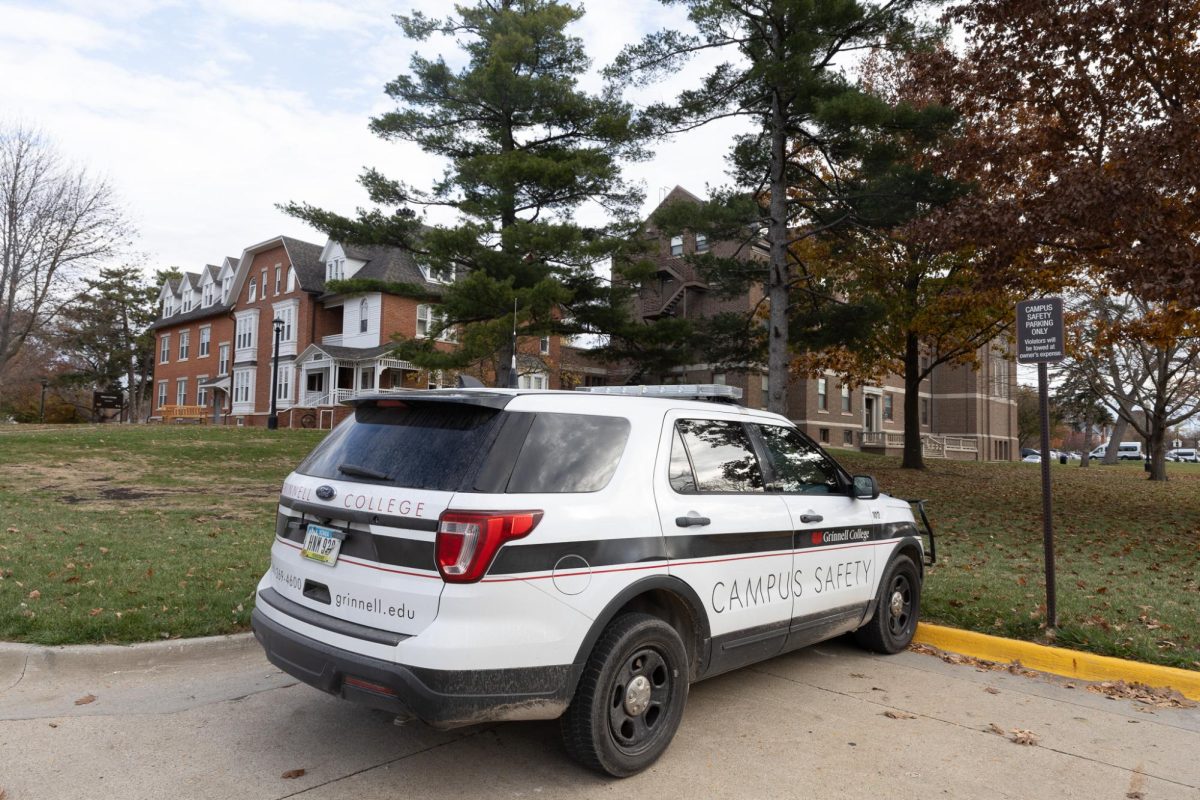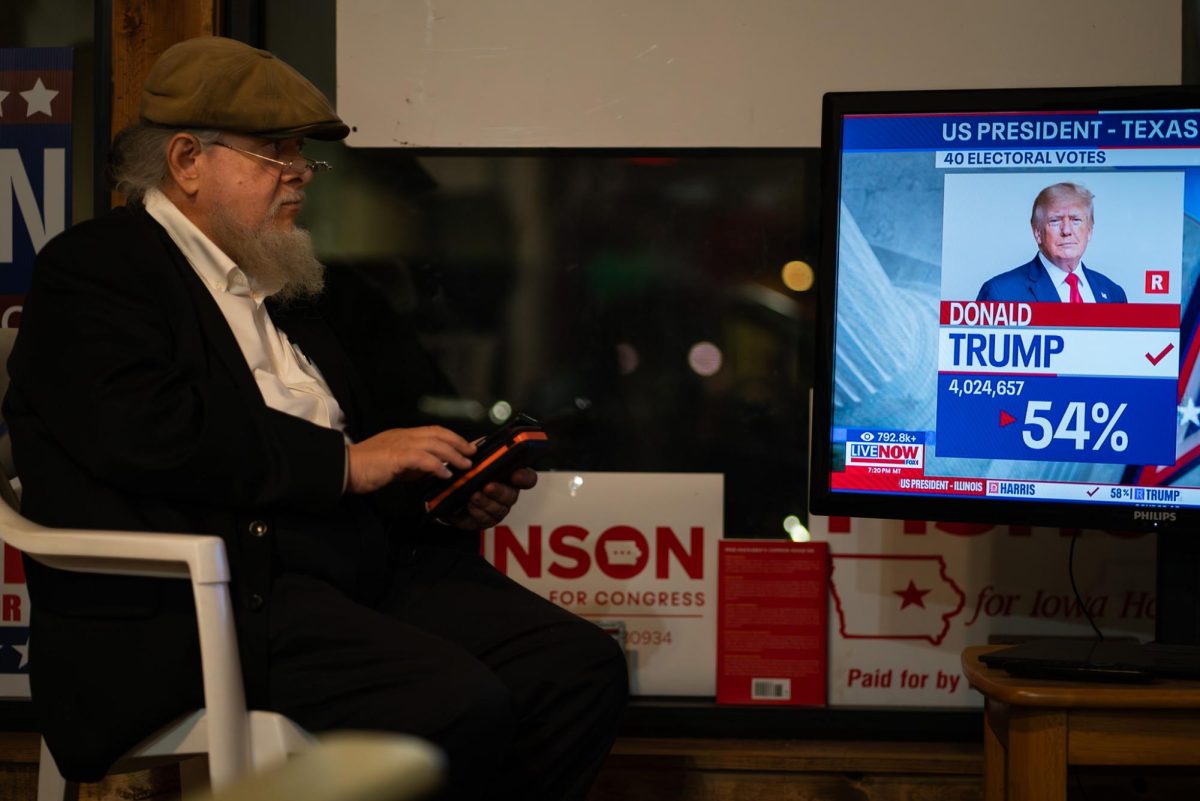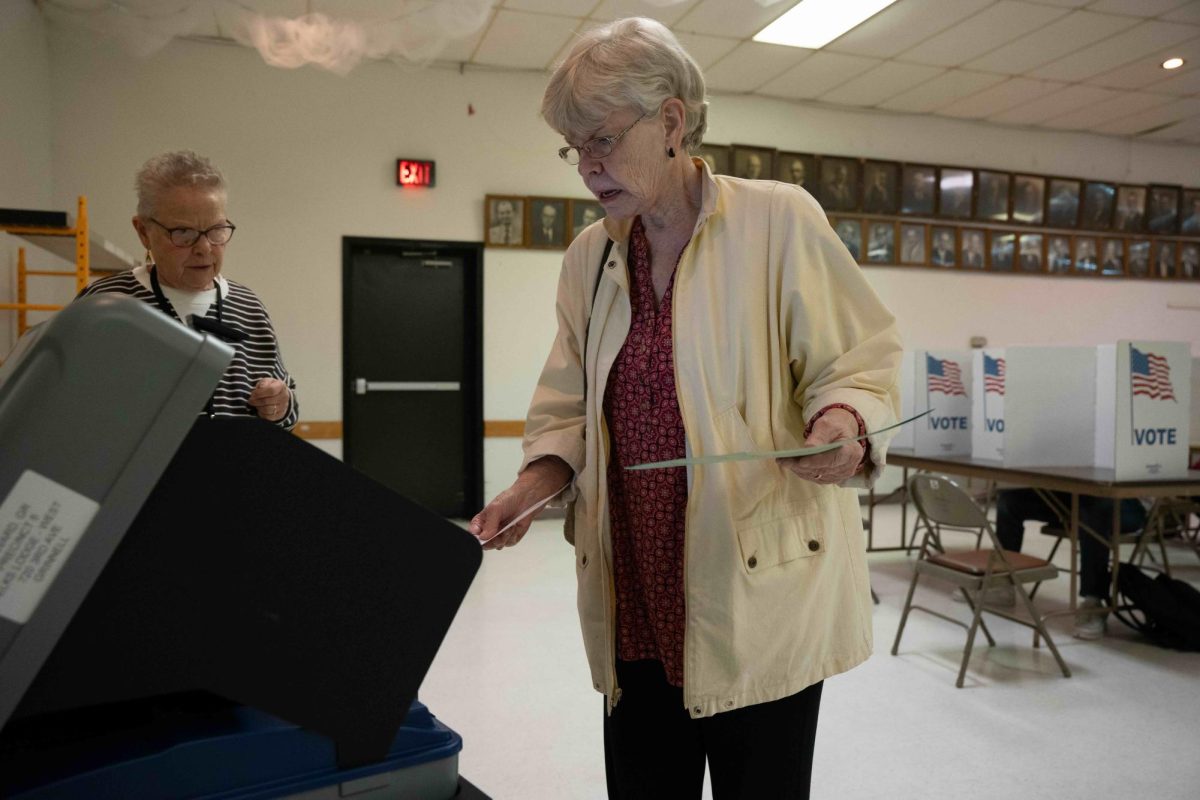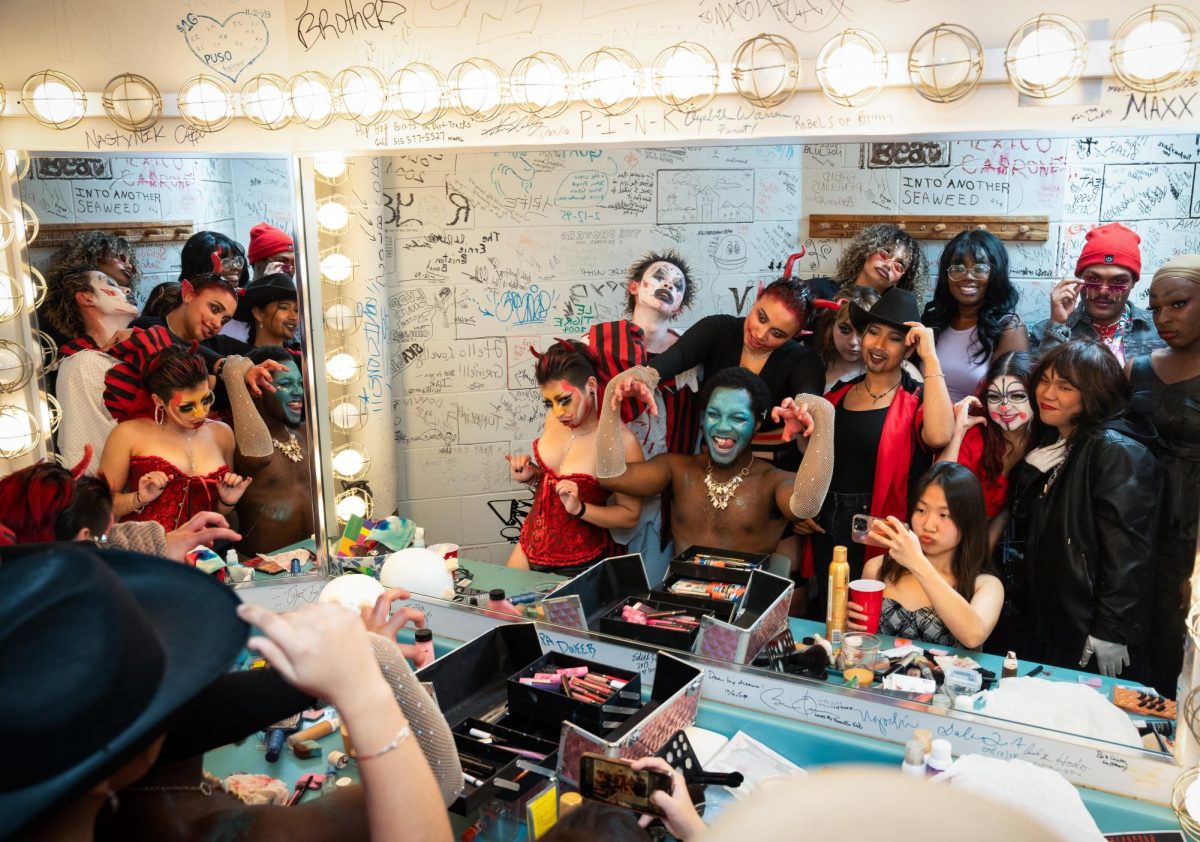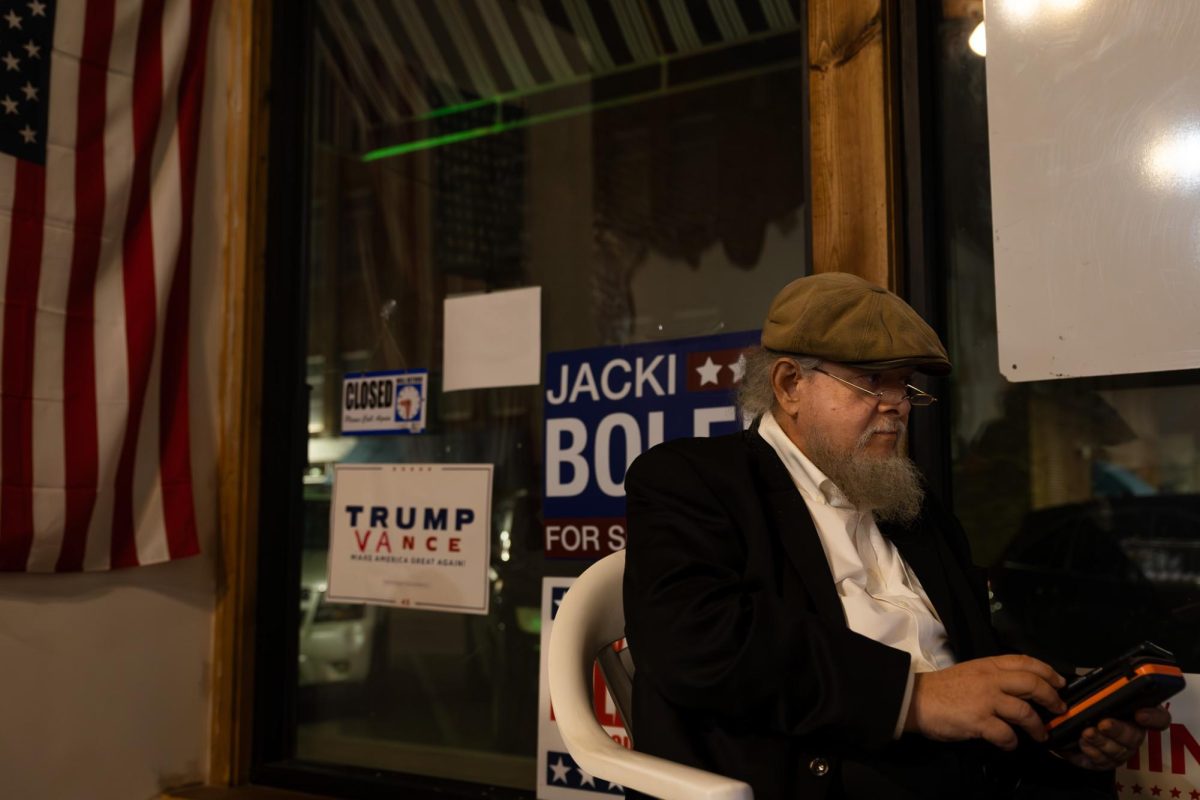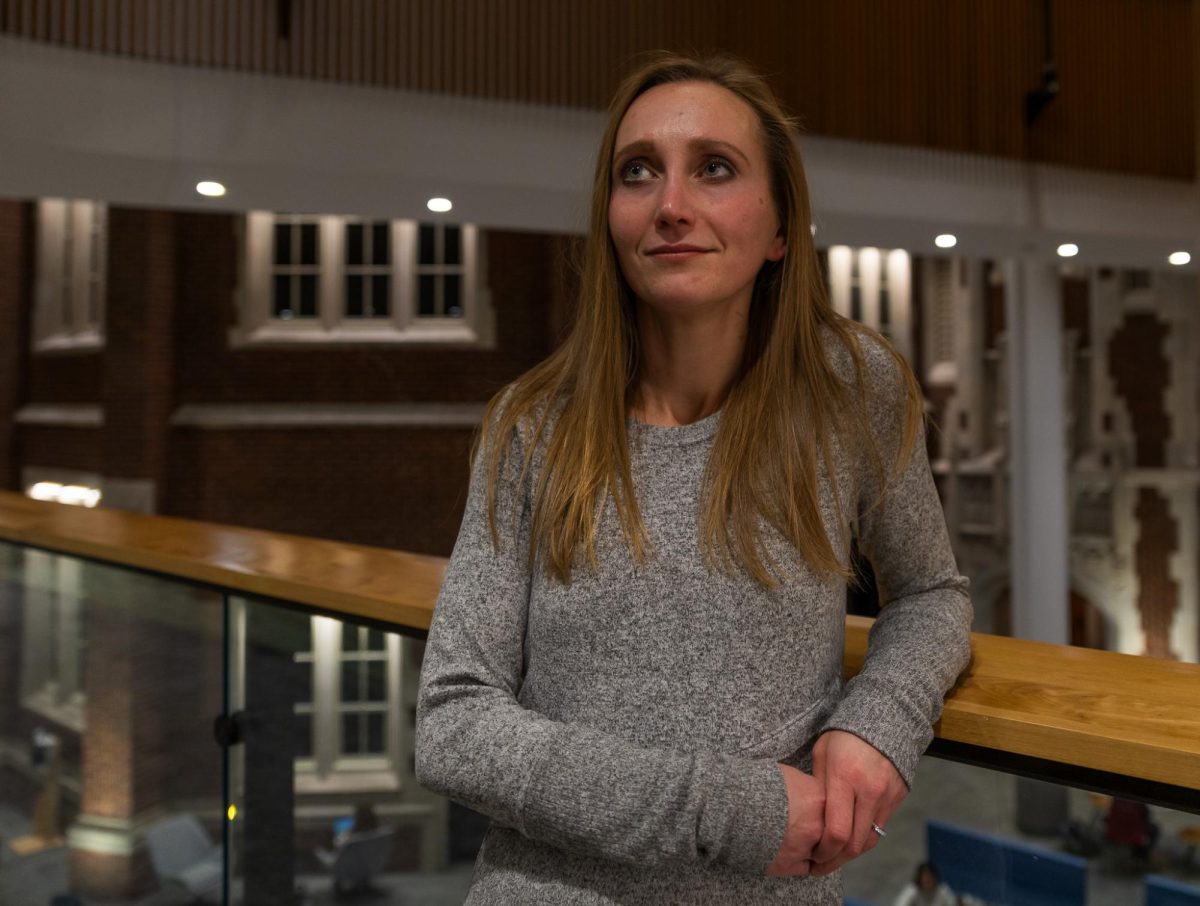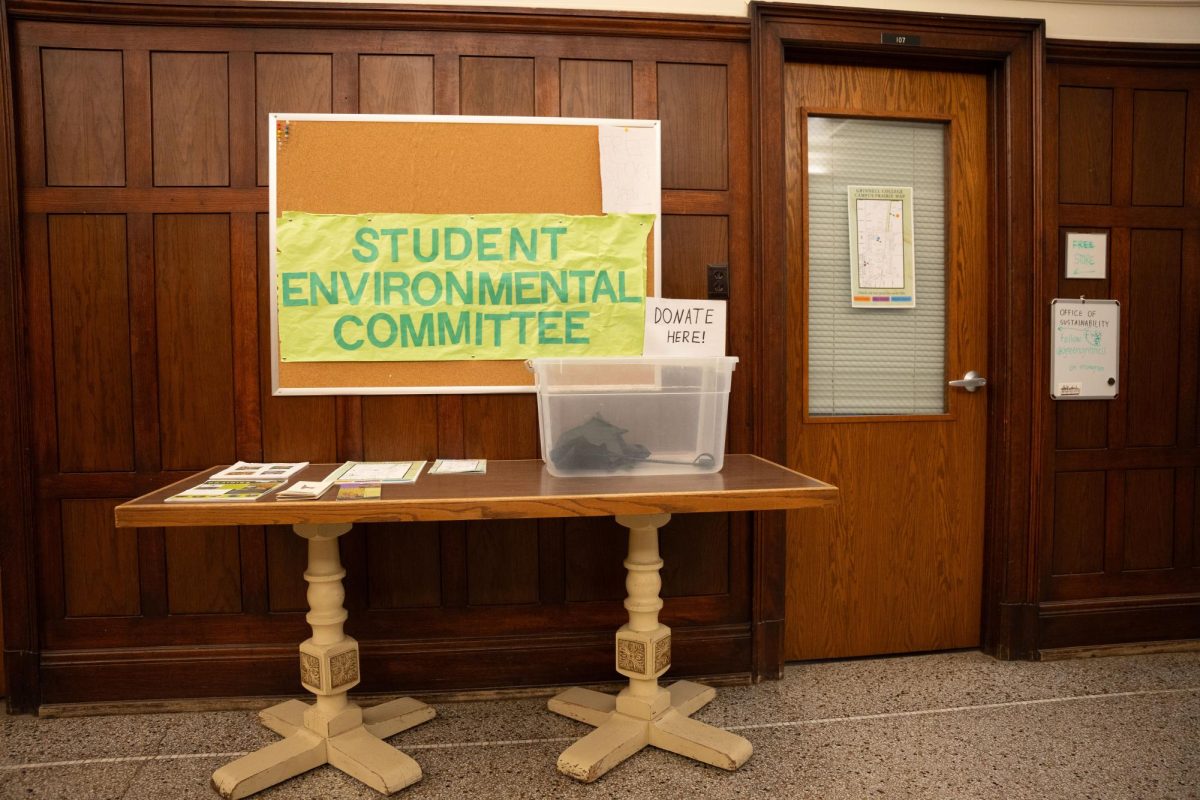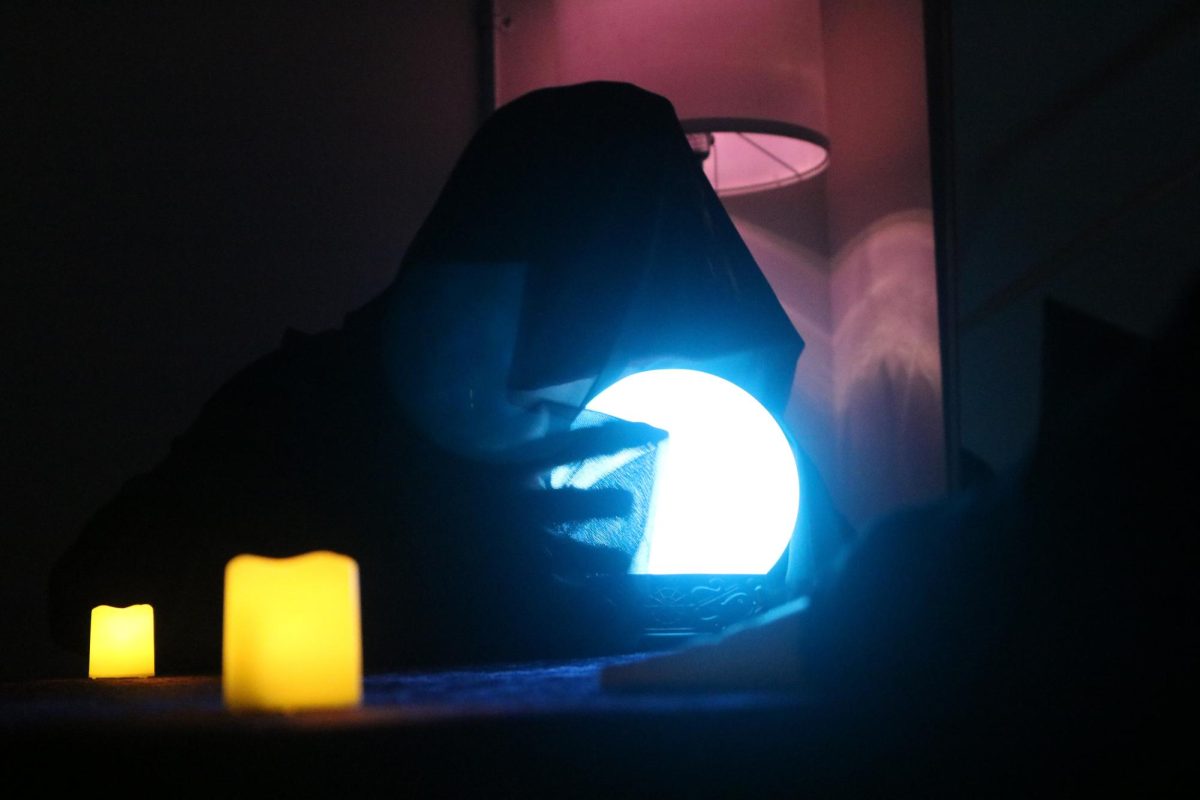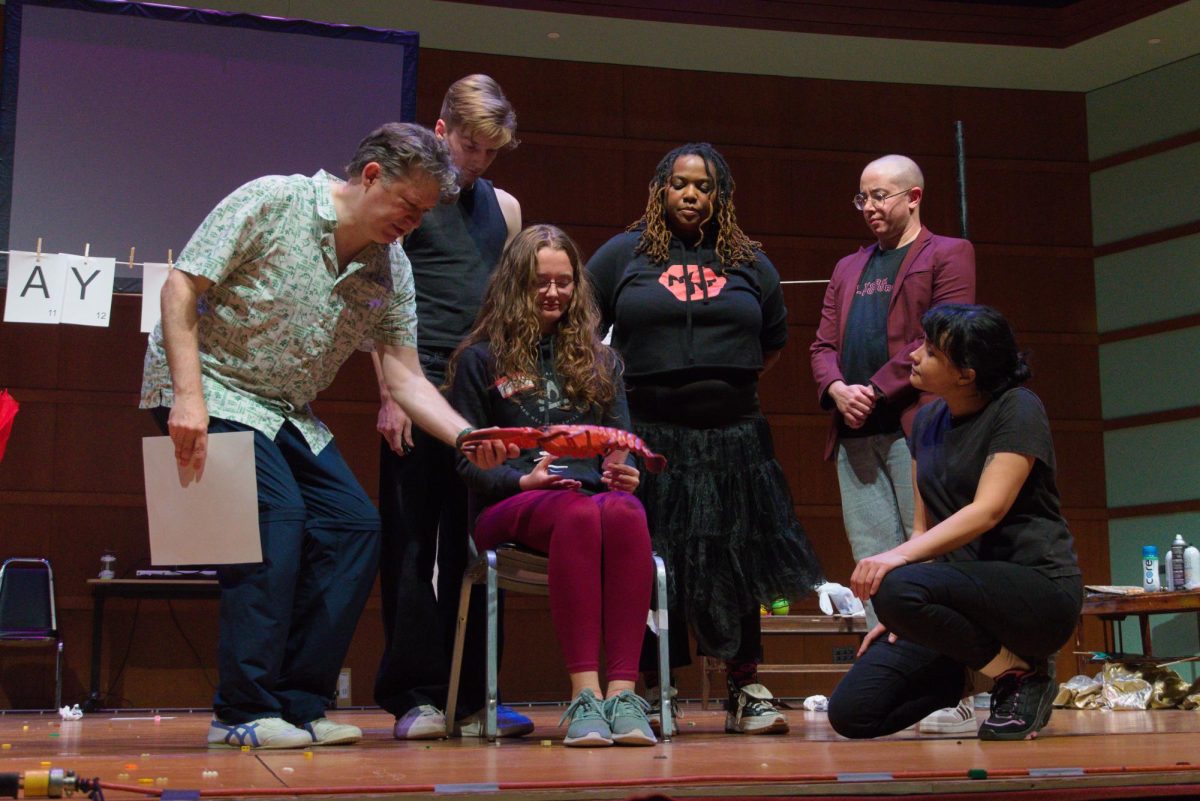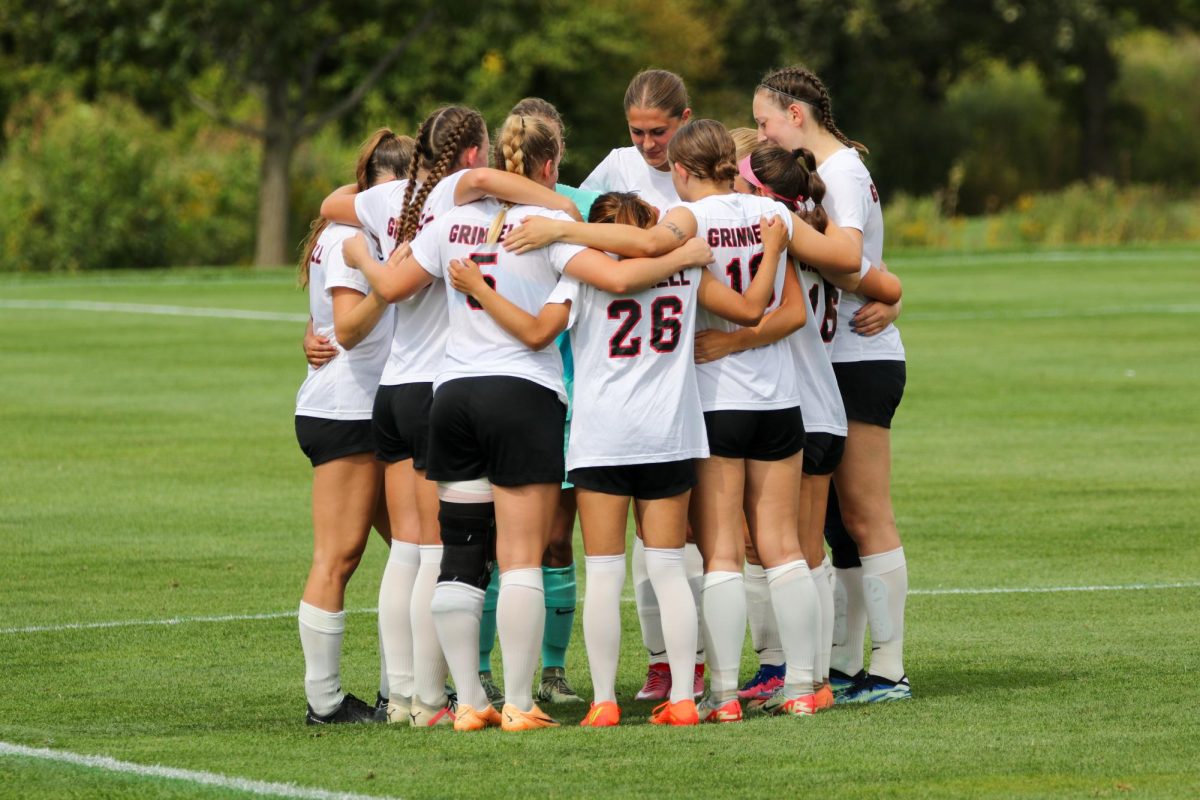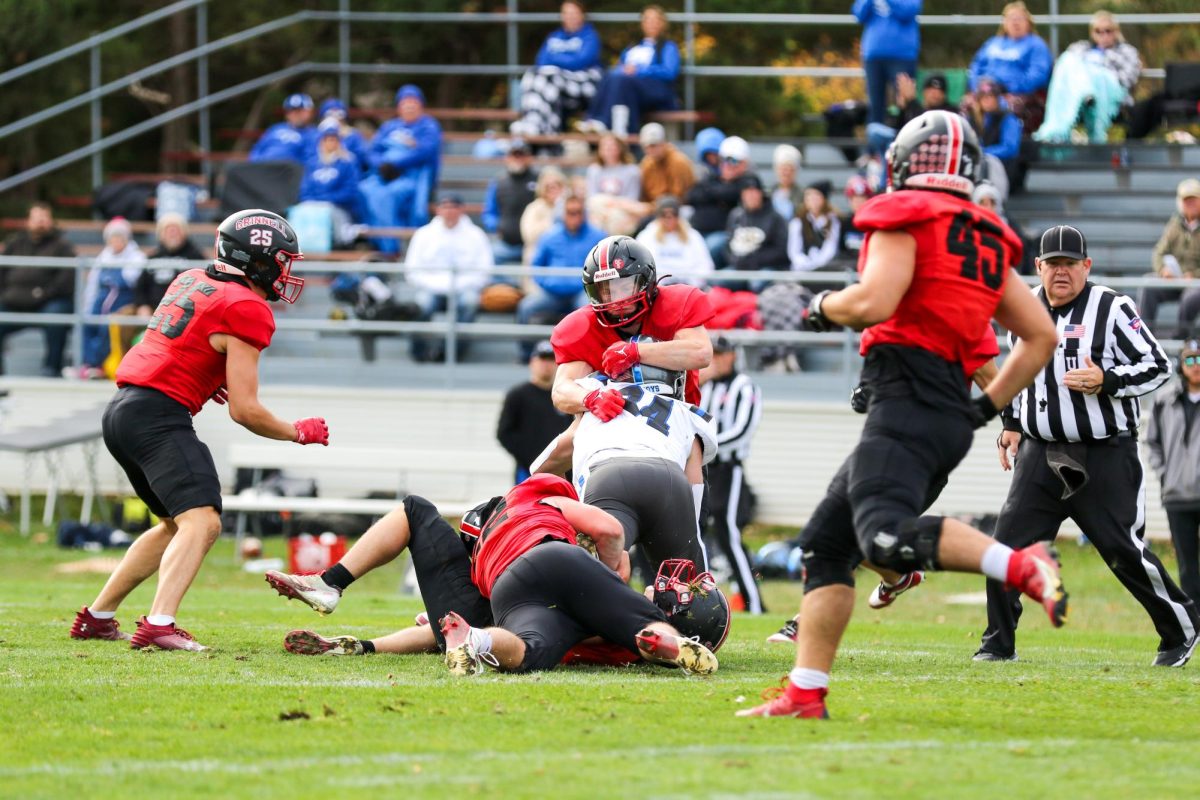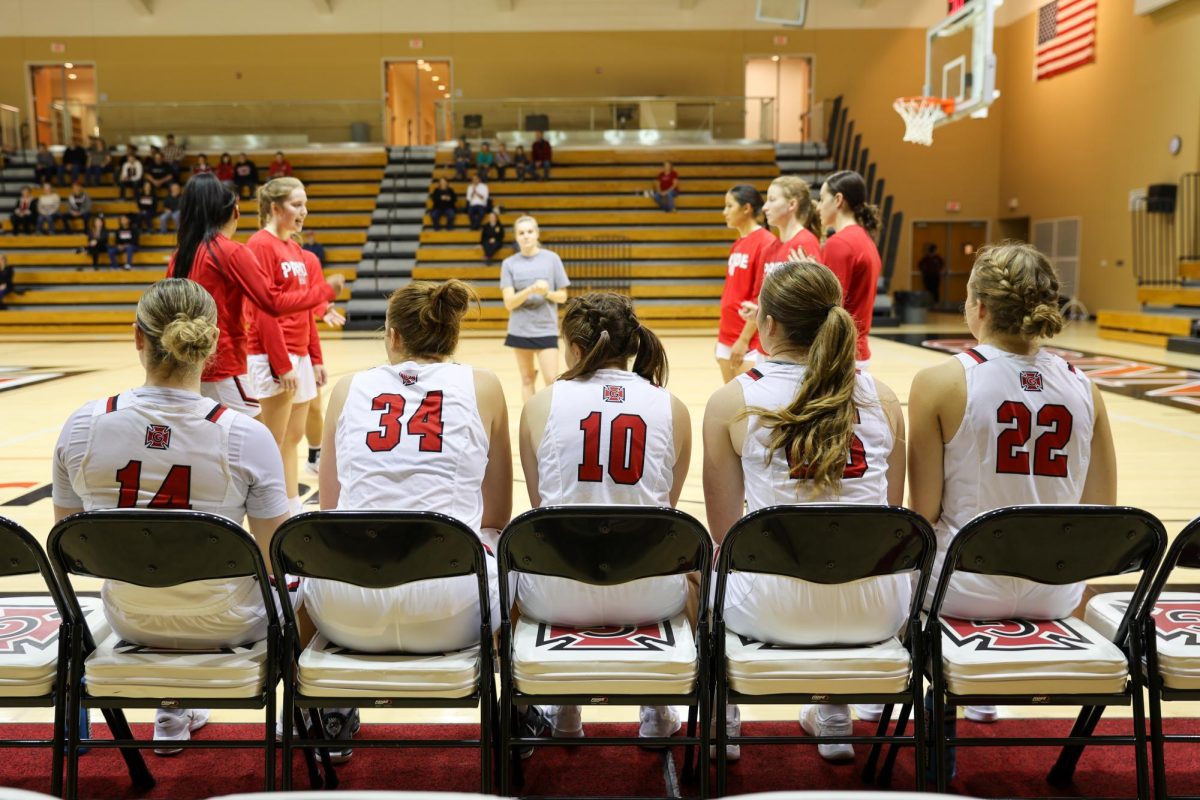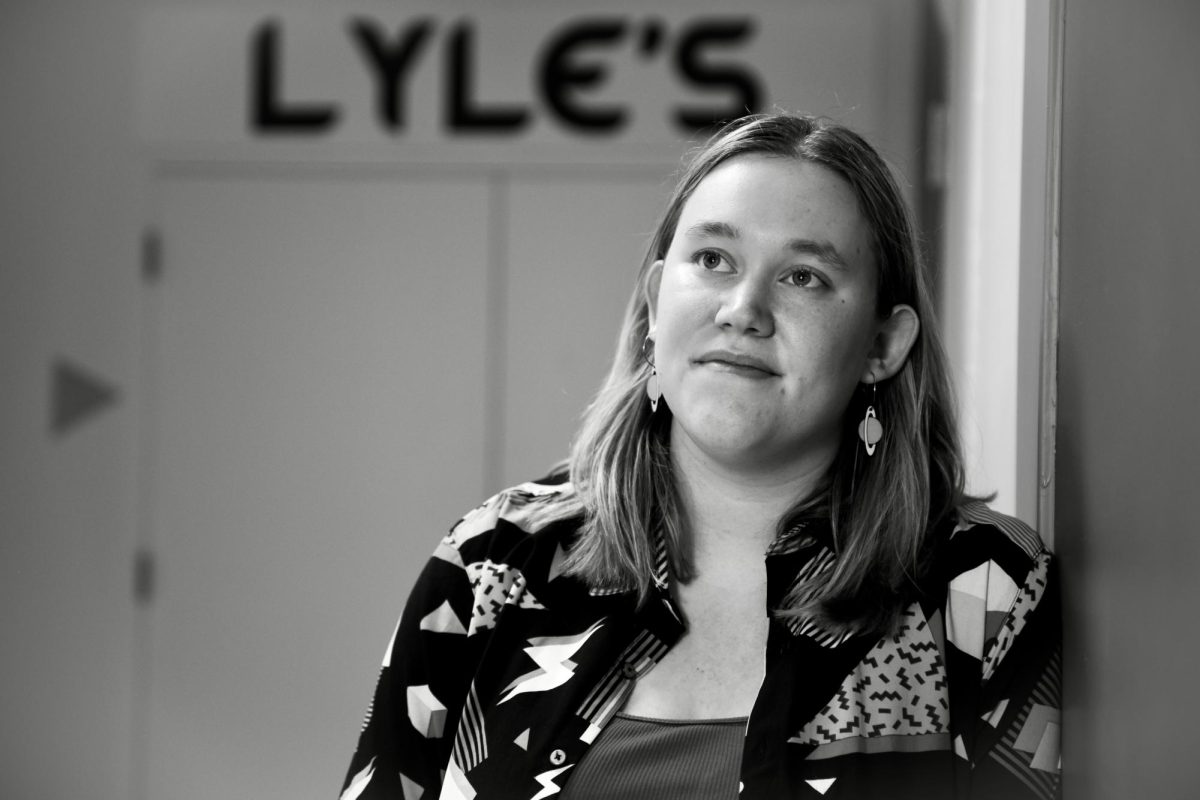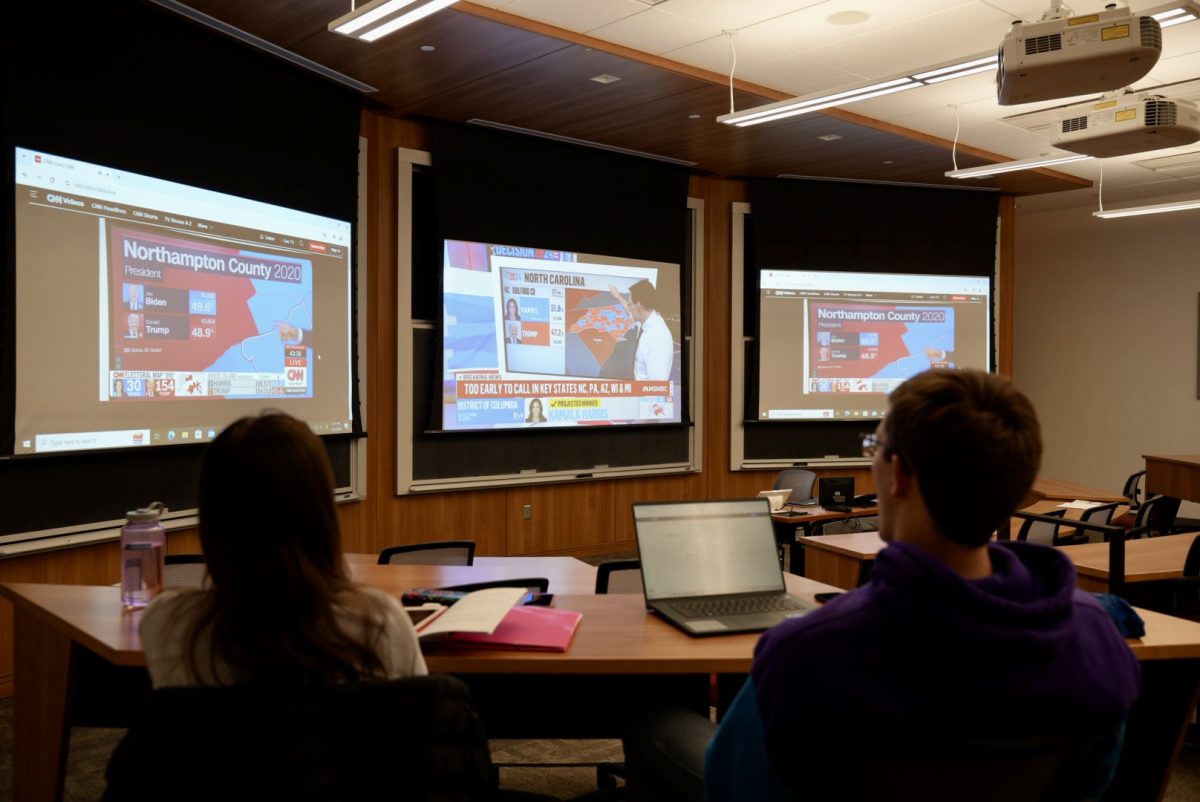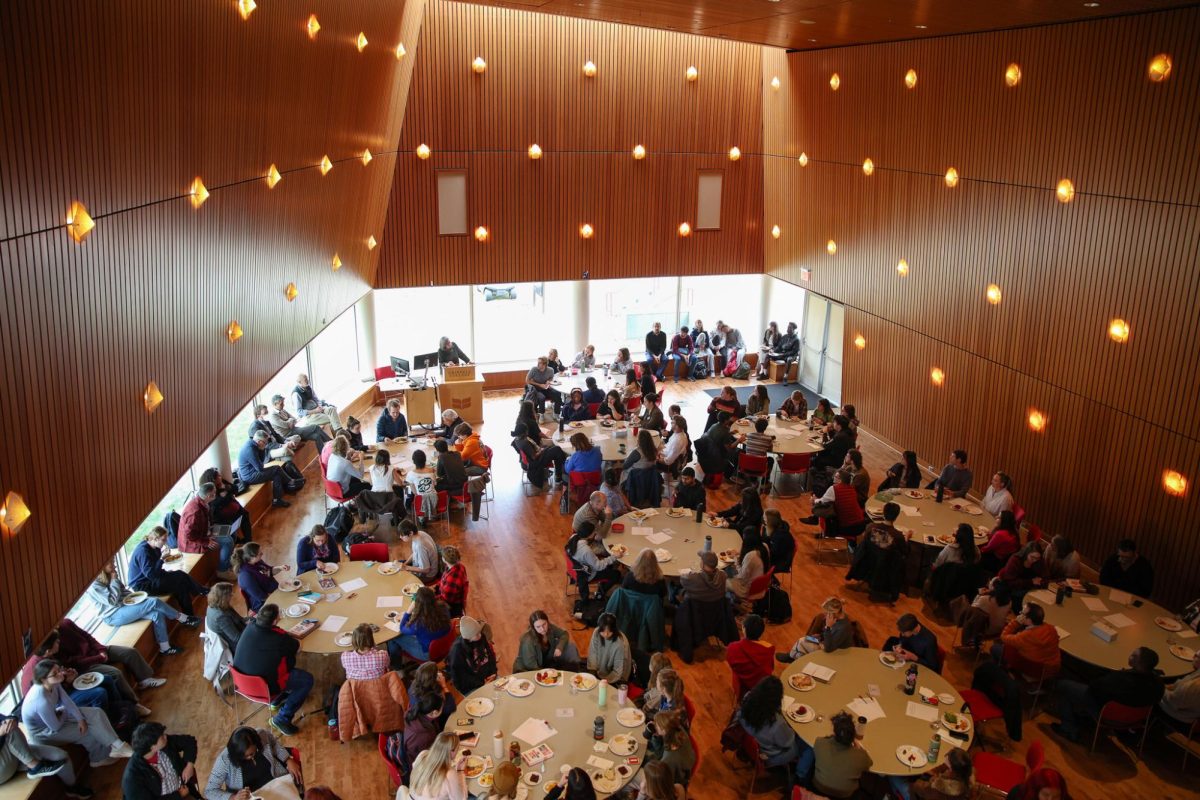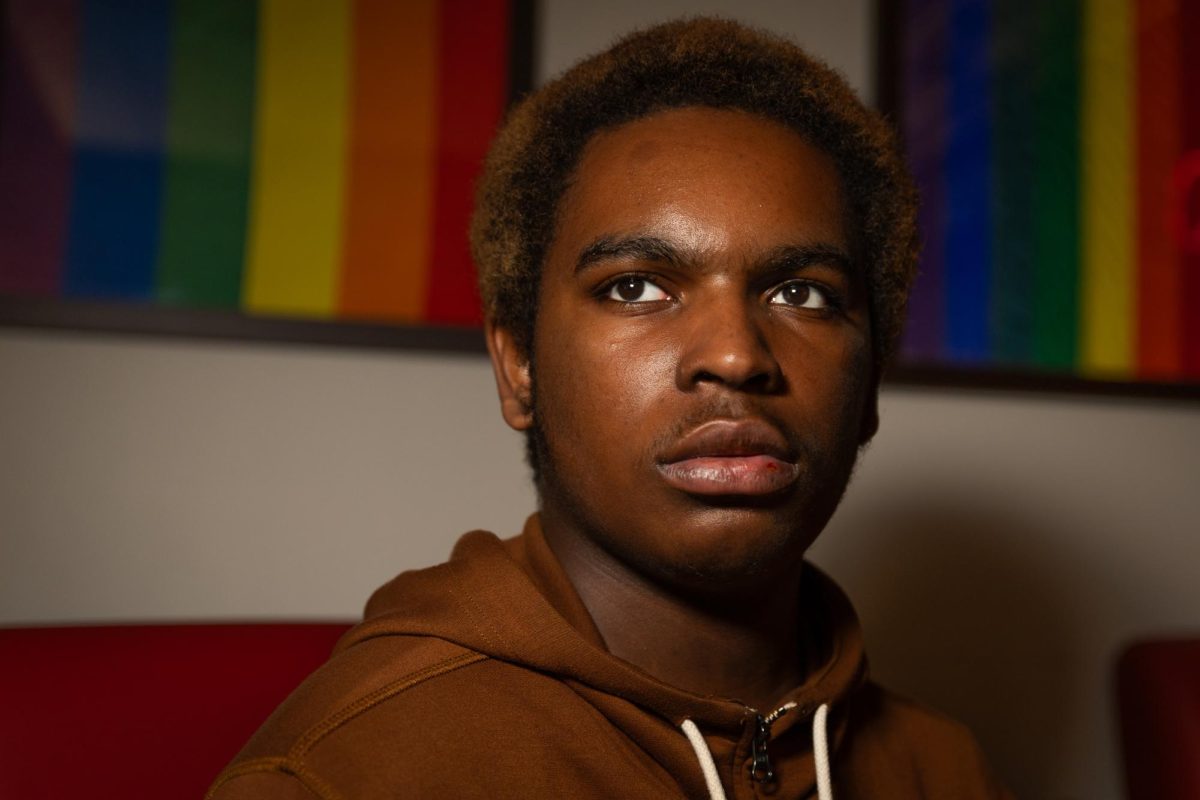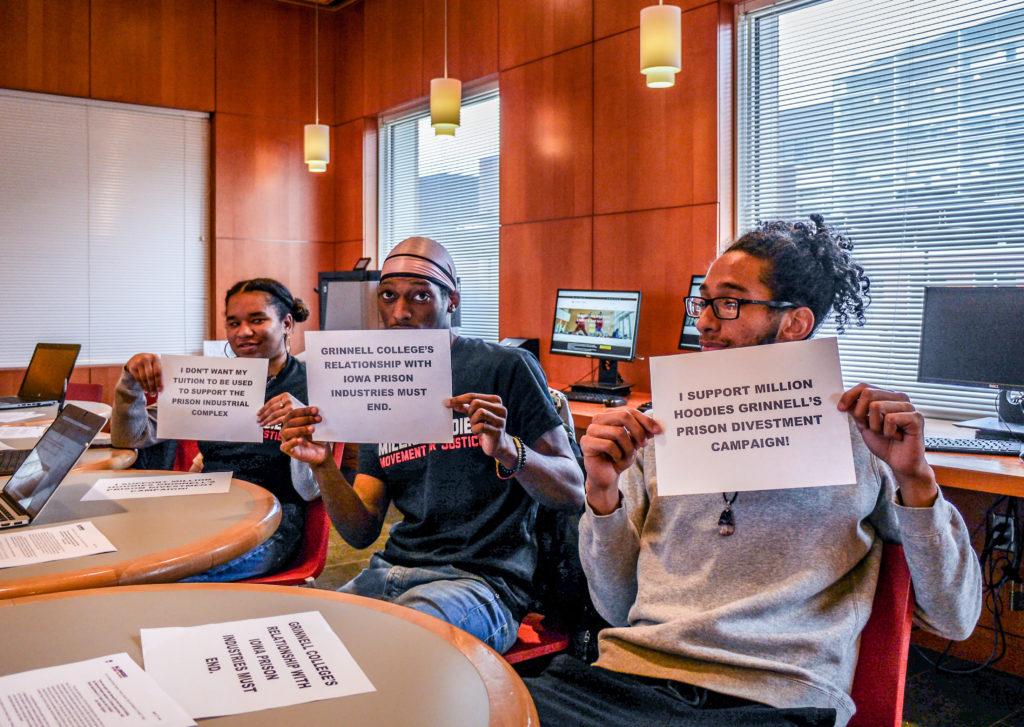
The student-run activist group Million Hoodies had their first action on Wednesday, April 10, inside of the JRC. The group is one chapter of a national organization, Million Hoodies Movement for Justice, which advocates for the rights of people of color, with a special focus on ending gun violence and reimagining safety and justice.
Grinnell College’s chapter of Million Hoodies launched their prison divestment campaign this week and spoke outside of the Spencer Grill on Wednesday from 4 to 7 p.m. about their goals. Malcolm Davis ’21, president of Million Hoodies Grinnell, wrote an open letter on behalf of the activist group, addressed to President Raynard Kington, as well as the trustees, faculty, staff and students of Grinnell College.
“We are kicking off our prison divestment campaign, the first step being today’s revealing of our open letter to Raynard Kington, the trustees and administrators of Grinnell College, and we’re doing this in conjunction with Freedom Campuses nationally of action, so 15 other campuses are having actions centered around creating safety on campuses, pushing for abolition and divestment from prisons and the prison industrial complex as a whole,” Davis said.
The letter begins with a statistic reported in the Des Moines Register in 2016: in Iowa, black people are imprisoned at 11 times the rate of white people, making Iowa one of the worst states in the nation for disproportionate incarceration by race. The letter then details that the College purchases labor and furniture from Iowa Prison Industries, which made $4.9 million in sales in 2013 while paying prisoners less than $1 per hour.
“Disproportionate incarceration in Iowa is incredibly high, and because we are in Iowa, it is more than likely that we are using a labor force that is black and brown and paid between 28 and 88 cents an hour,” Davis said.
“And when you consider things like the fact that they have to pay like $3 to submit a health request. … That’s like a day’s work,” added Jelani McCray ’21, vice-president of Million Hoodies Grinnell.
Million Hoodies’ open letter ends with a call to end the College’s relationship with Iowa Prison Industries and to instead reinvest in assisting black and brown communities affected by the prison industrial complex.
“The connection, the proximity of Grinnell to prison industries as business partners is not something that we like at all, so we are pushing the administration to recognize this,” Davis said.
Million Hoodies Grinnell hopes to gain as much student interest and support as possible for the prison divestment campaign. The petition does not have a set goal number of signatures, but rather exists to demonstrate overall student interest in the campaign.
“We’re just trying to indicate that there is support in the greater population of Grinnell. It is not just a student group doing this, but all students feel that this is an unjust connection,” Davis said.
An important part of the campaign involves a reinvestment aspect in addition to divestment from prison labor. Million Hoodies has a plan to reinvest the money currently given to Iowa Prison Industries into efforts to rebuild and support black and brown communities devastated by the prison industrial complex.
“Our original plan was just to try and force [the College] to divest, but then like divest and then what? So that’s where we bring in the reinvestment piece within the communities,” McCray said.
Million Hoodies Grinnell hopes to meet with Kington and trustees or members of the College administration as the next step in their campaign.
